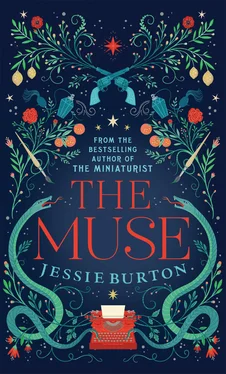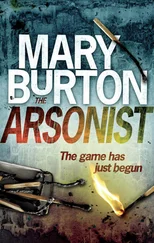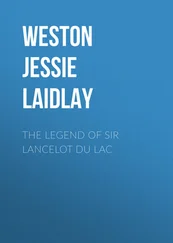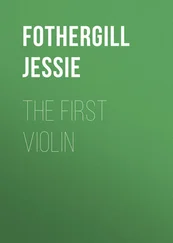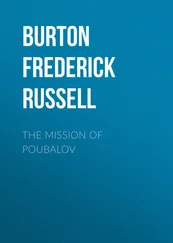‘I’m coming to see you,’ I said, surprised at how adamant I sounded, more than I’d ever dared to sound before.
I could hear Quick hesitate, thinking, the catch of breath as she stopped resisting. ‘What about your work?’ she said. ‘They need you for the exhibition.’
Her protest was weak, and her words were everything I needed to hear. Quick needed me; she knew she did. ‘ You are my work, Quick,’ I said. ‘Can’t you see?’
‘I’m not in a good way.’
‘I know.’
‘No — you don’t understand. I’m scared. They’re coming. I never meant to hurt her.’
Suddenly I felt very claustrophobic in this phone box; I wanted to get out. ‘Who didn’t you want to hurt?’
‘I can hear them—’
‘No one’s coming,’ I soothed, but she was unnerving me. I needed air, and her voice was so desperate. ‘Don’t be scared,’ I said. ‘Quick, are you still there? You can trust me, I promise.’
‘What did you say?’
‘Listen, Quick. I’ll be there soon. Quick?’
The line had gone dead. Feeling sick, I pushed my way out of the phone box, and hurried to the nearest Tube.
It was still warm by late September, the air in Arazuelo still heavy with honeysuckle, the earth reddened and cracked. Lying beneath this beauteous landscape was sour matter, but it didn’t feel like war; not how the Schlosses thought war was supposed to be. It was something worse, a localized, persistent terror. Italian and German bombers would fly overhead, shooting at stationary planes on airfields, at Malaga port, at petrol tanks. But there was a strange sense of limbo, an intermittent hope that all this would be tied up soon, that the Republican government would sort a resistance against these nationalist rebels and their foreign allies, who were stretching their reach across the country.
The nationalists had gained control of Old Castile, Leon, Oviedo, Alava, Navarre, Galicia, Zaragoza, the Canaries and all the Balearics, except Menorca. In the south, they had seized Cadiz, Seville, Cordoba, Granada and Huelva. Malaga was still in the Republican zone — as was Arazuelo — but nevertheless, the rebels felt very near.
Harold would drive into Malaga in order to bring back supplies. He said some shops and bars would be open, whilst others were closed, and the trains and buses would mysteriously cease and resume their timetables with no warning. Nothing was stable. No one was even wearing neckties any more, for such flourishes were taken as a sign of bourgeois tendency and might make you a target for the reds. Harold hoped the worst the Anarchists might do was steal his car, vehicles requisitioned ‘for the cause’, petrol siphoned off for trucks, elegant motors left to rust.
The days were bearable; the worst was the nights. The family lay awake in the finca as gunshots peppered the fields, ever nearer. Each side of the growing battle saw the other as a faceless, viral mass contaminating the body politic, requiring excision from society. Right-wing and left-wing gangs were taking the law into their own hands, removing opponents from their homes, leaving them in unmarked graves amongst the hills and groves.
In many instances, politics was the cover for personal vendetta and family feud. Most of the right-wing terror was directed against those who had influenced the violence against the priests and the factory owners back in 1934 — union leaders, prominent anti-clericals, several Republican mayors. And yet — mechanics, butchers, doctors, builders, labourers, barbers — they too were ‘taken for a walk’, as the phrase came to be known. And it wasn’t just men. Certain women who had become teachers under the Republic were removed, as were known anarchists’ wives. None of it was legal, of course, but there seemed no means of stopping it, when hate and power were in play.
As for the rogue elements on the left — despite the posters Harold had seen plastered around Malaga, imploring them to stop shaming their political and trade organizations and to cease their brutalities — they went for retired civil guards, Catholic sympathizers, people they knew to be rich, people they believed to be rich. Houses were looted, their property damaged — and it was this fear that often struck first into the imagination of the middle classes, rather than the chance they would be shot.
The Schlosses did not fear for themselves. They thought no one would touch them, as foreigners. They were nothing to do with all this. Death was taking place beyond their village, outside municipal authority and the sight of the people. The violence in the country — against both the body of a village and a villager’s bullet-riddled corpse — was concealed, although everyone knew it was there. Because you couldn’t see it, you carried on. It was odd, Olive thought, how you could live alongside this; how you could know all this was happening, and still not want to leave.
She had long ago abandoned trying to listen to the BBC to seek the facts, for it offered little more than an improbable-sounding hybrid of information from Madrid and Seville, adding it together and dividing it by London. Yet the Republican government stations were one long barrage of victory speeches and claims of triumph, which were rather undermined by actual events. Granada’s frequency always crackled, not a word could be heard — and the same applied to the northern cities, whose radio waves could not penetrate the southern mountains.
The city of Malaga, however, was constantly broadcasting denials, rumours and myths; Republican calls to arms, meeting times and orders to build a new Spain, free of fascists. And on the other side, the alarming nationalist invective was a frequency in Seville. In the daytime, it would play music and personal announcements, as if there was no conflict going on at all. But by night, the insurgents would broadcast, and although there was still much bombast and warmongering in it, Olive used it to deduce the changing state of her adopted country’s fortunes. She listened as Queipo de Llano, the general who had first broadcast from Seville, maintained his unrelenting bloodthirstiness, crying out that there was a cancer in Spain, a body of infidels that only death would remove.
It was unnerving, all of it; and yet there were heartening stories of people refusing to do exactly what the generals wanted. Teresa reported how a priest in the neighbouring village prevented a Falangist gang from shooting the atheists in his parish. She had also heard rumours of leftists reprimanding Anarchists for trying to burn down the local church, even hiding right-wing neighbours in their bread ovens, protecting them from certain death when the radicals turned up.
Olive, listening to these tales, could see how most people were massed in the middle. They wanted no disturbance, desperate just to live their lives away from these demonstrations of power, talks of purge, of brutality sprayed in blood against a whitewashed wall. But their desire couldn’t change the truth of Arazuelo’s atmosphere. She would walk into the village and see people’s pinched faces, worrying who was going to defend whom when Arazuelo’s day of reckoning finally came.
Isaac purchased a rifle in Malaga from a trade-union contact, who was fond of poaching his boss’s boar. He reinforced the bolt across the cottage door, but he knew this would mean nothing to someone determined to get him. More ‘people of interest’ to the nationalist rebels had left their villages to hide out in the countryside, or join the militias run by the Communist party in Malaga. But this wasn’t far enough for Teresa. She wanted him to leave.
‘I think you should go north,’ she said. ‘You’ve made too many enemies here. You don’t fit. The left won’t trust you because of our father, and the right don’t trust you for not being his legitimate son.’
Читать дальше
